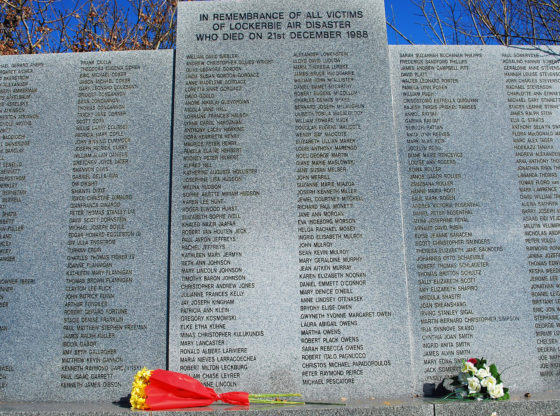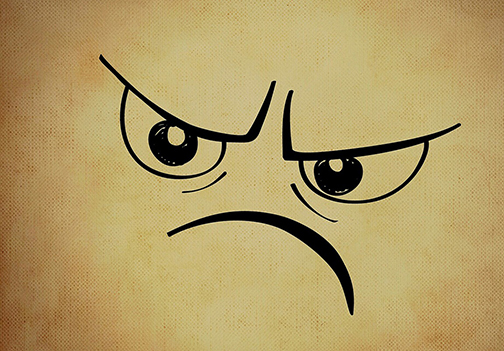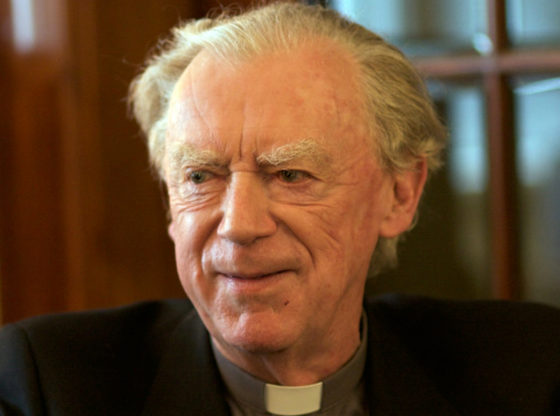In March 2018, Russians will go to the ballot box to elect a new President. It is overwhelmingly likely that Vladimir Putin will win another six-year term. But his presidency is now jaded and people are speaking quietly about what post-Putin Russia might look like. Is there a tired state of limbo in Russia? Lindsay Mackenzie tells the story.
On 6 December, on a factory floor in the city of Nizhny Novgorod, Vladimir Putin finally confirmed he would be running in Russia’s 2018 presidential election. It wasn’t a surprise. Any speculation had been over when, not whether, he would announce his candidacy. A short campaign will see him re-elected this coming March.
Mr Putin has been in power – as President or Prime Minster – for 18 years. Assuming he stays for the full six-year term until 2024, he will become the longest serving Russian leader since Josef Stalin. Between now and the spring, then, the theatre that is the presidential election will play out. Elections in Russia are not about competition. Instead, they are rituals. They are about legitimisation. Conveniently, Mr Putin’s main opponent, Alexei Navalny, has been barred from running. Little stands in the President’s way.
But there’s more going on than meets the eye. Mr Navalny has tapped into growing frustrations across the country. Politics seems to have returned to Russia. And while the election may be a done deal, what happens afterwards is less clear. Many see this as President Putin’s last election. He will be constitutionally blocked from running in 2024. Russia’s indispensable man will become, at least technically, dispensable.
There is already speculation about what a ‘post-Putin’ Russia might look like. Change may well be on its way. But not yet.
A YEAR OF REVOLUTION
“We buried the revolution. You always need to bury her carefully so she can’t get out”, said Mikhail Piotrovsky, head of Russia’s State Hermitage Museum in St Petersburg.
A month before Mr Putin confirmed his candidacy, Russia celebrated the centenary of the 1917 Russian revolution. There was little official fanfare. Mr Putin – a President who never normally shies away from using history to legitimise his own rule – appeared ambivalent. The revolution’s world-wide consequences seemed to be discussed everywhere but its country of origin.
The anniversary of the revolution was always going to be problematic for the Kremlin. There is no unifying Russian narrative about what happened in 1917. Conflicting and contradictory interpretations abound. Mr Putin and the Kremlin, in the end, saw it best to simply avoid it all together. This was probably to be expected. Mr Putin is an anti-revolutionary, after all. Commemorating the revolution would have demanded a discussion of its origins, the consequences of a centralised and weak state, and what can happen when those from below challenge those above.
This is not to say that Moscow is worried about another revolution or uprising. It isn’t. Rather, the story of 1917 just doesn’t fit the Kremlin’s current narrative. There is nothing to glorify. It simply gets in the way. The centenary fell at a time when speculation about the 2018 election was beginning to gather pace. Mr Putin would have been thinking about his own place in history.
Even so, comparisons between Tsar Nicholas II (Russia’s leader in 1917) and President Putin have been difficult to avoid. While it is a tempting comparison, Mr Putin has always been more of a manager of competing interests than a tsar. However, they do share one problem that has plagued Russia for most of its modern history: succession.
PLANNING FOR THE FUTURE
President Putin’s accumulation of power over the last 18 years has left few alternatives to his rule, and no clear plan for Russia’s future. Increasingly kleptocratic and authoritarian, ‘Putinism‘ has produced, and perpetuated, a highly personalised system with few checks and balances. How do you pass this kind of system on? Who do you trust to pass it onto? Can it even be done?
These are the kinds of questions now reverberating around Moscow. For many, a Russia without Mr Putin at the helm is beginning to be conceivable. What is less clear however, is who, or what, could replace him.
Mr Putin increasingly comes across as disengaged with the political world around him. At his annual press conference in December, he appeared bored.
With his legitimacy partly being built on his indispensability, the President’s eventual absence has prompted some furious head-scratching. What could come next? There is talk of pushing through limited constitutional change to create some sort of a post-presidential position. Think, a ‘father of the nation’ role which would allow Mr Putin to stay on, maintaining a semblance of control. A transition to the Chinese model of central government would also be an option. While such a re-structuring of power would be possible, it would also be risky.
Perhaps the bigger question to ask is whether he would even remain interested in governing. Mr Putin increasingly comes across as disengaged with the political world around him. At his annual press conference in December, he appeared bored. Filled with platitudes and generalities, the conference was stilted and remarkably uneventful. It’s almost as if Mr Putin would rather people ignored the impending election vote.
At the same time, major business and political players within the Moscow elite are testing the waters and positioning themselves for what may come after the current President’s reign. While Mr Putin ultimately remains in control, power struggles and rivalries are now playing out in ways that he would once have stamped out. At times, he resembles more of a spectator than an arbiter. This deterioration of regime identity has seen various power vacuums opening up. It’s unclear whether Mr Putin is able to plug them.
One of the most shocking examples of this has been the trial of Alexei Ulyukayev.
THE TRIAL OF ALEXEI ULYUKAYEV
Throughout December, the trial of Alexei Ulyukayev gripped, and shocked, Russia. On 15 December, the former Economy Minister was found guilty of soliciting a $2 million bribe from Igor Sechin. Mr Sechin is the chief executive of Rosneft (a large state-run oil company), a close advisor to Mr Putin, and often regard as the second most powerful man in Russia.
Mr Ulyukayev, who throughout the trial argued that he had been framed, was sentenced to eight years in jail. He was the first sitting minister to be arrested since Lavrenty Beria in 1953, after Joseph Stalin’s death.
Ulyukayev’s conviction is important because it has all the hallmarks of a politically-motivated trial. The verdict on his guilt was shaky. There was little in the way of established evidence. The testimonies were unconvincing. Mr Sechin, who was repeatedly asked to testify in court, ignored every request. And none of this seemed to matter.
Even the story itself seems questionable. Mr Ulyukayev was originally arrested in November 2016 in what was an apparent sting operation. The former Economy Minister, so it goes, solicited the $2 million from Mr Sechin to give his support to Rosneft’s acquisition of a 19.5 percent stake in another oil company called Bashneft. After the two met in a bugged office, Mr Ulyukayev received a ‘money bag’. He was then picked up by the FSB.
The whole charade begs the question – was this something sanctioned by Mr Putin, or was Mr Sechin working alone? The latter seems more likely. Either way, the Rosneft CEO used the court system in a gratuitous display of authority. The trial should be viewed as an extreme example of elite in-fighting and power projection that would normally not be aired in public. In this round, Mr Sechin won. Whether Mr Putin was unwilling or unable to intervene, is unclear. But Mr Sechin’s victory has shown that those around the President are already thinking about how best to secure their own interests in a post-Putin world.
THE BANNING OF ALEXEI NAVALNY
While any post-Putin future remains uncertain, the election in March will see the President re-elected for what will likely be his final term. With voting only three months away, Mr Putin is unlikely to make many (if any) public appearances. Those he does make will be strictly choreographed. The Kremlin has a history of trying to depoliticise elections. This year will be no different.
One man who has tried to stop this has been lawyer turned anti-corruption campaigner, and now politician, Alexei Navalny. Mr Navalny first appeared on the political scene during anti-corruption protests in 2011 and 2012. He ran for the position of Moscow Mayor a year later, securing almost 30 percent of the vote.
Throughout 2017, Mr Navalny became a lightening rod for growing – and varied – frustrations across Russia, from St Petersburg to Vladivostok. He published videos, organised rallies, and toured the country. He was the face of the biggest political protests in Russia for five years.
Throughout 2017, Mr Navalny became a lightening rod for growing – and varied – frustrations across Russia, from St Petersburg to Vladivostok. He published videos, organised rallies, and toured the country. He was the face of the biggest political protests in Russia for five years. At the end of December, Mr Navalny’s supporters gathered to formally nominate his presidential candidacy. Just days later, Russia’s Central Electoral Commission confirmed that he would not be allowed to take part. His criminal conviction – a fraud charge described by the Council of Europe as “arbitrary and unfair” – was deemed sufficient to bar him from public office until at least 2028.
It was to be expected. Mr Navalny – whose name President Putin is still to use in public – has been the only real political opposition with traction. Despite him and his team facing intimidation, assault, and arrest, his campaign offices have continued to open up across the country, and draw crowds in towns and cities normally considered government strongholds.
In a recent Twitter post, Mr Navalny – who will now surely run an unofficial campaign anyway – said he would not recognise an election without competition. Yet there is very little of that on show. So far, the election has mostly been made up of the regular token opposition. Even the surprise addition of television star and liberal socialite Ksenia Sobchak to the electoral race has been viewed with suspicion. While she maintains that her bid is genuine, there is speculation that she is running with some sort of Kremlin approval, a government-endorsed effort to breathe life into an election that is already over.
THE END OF STORIES
Perhaps now more than ever in the history of Mr Putin’s rule, the Kremlin has run out of stories to tell its population. The President’s first two terms saw his legitimacy built on a social contract of economic prosperity. Rising incomes, 7 percent growth, and general stability in the wake of a chaotic 1990s proved popular. As the economy floundered, military adventurism and an assertive foreign policy, played a more central role.
But the wars in Eastern Ukraine and Syria are increasingly unpopular. Amidst worries of a new set of looming US sanctions, the threat from ‘foreign powers’ has been rebooted by the Kremlin. Familiar rhetoric about how the West is seeking to undermine, belittle, and diminish Russia has returned to its regular narrative. Everything from the winter Olympic ban to Mr Navalny’s campaign have been described as part of a Western covert attack. In such difficult times, surely only a strong veteran like Mr Putin can steer the country in the right course?
While Mr Putin has increasingly dropped domestic politics to focus on events outside Russia, what the majority of Russians really care about is the quality of their schools, healthcare, and roads.
The problem for the Kremlin is that this is a tired trope. While Mr Putin has increasingly dropped domestic politics to focus on events outside Russia, what the majority of Russians really care about is the quality of their schools, healthcare, and roads. A Levada Centre poll from last year showed that Mr Putin is still overwhelmingly popular. But another poll revealed that 51 percent of respondents were fed up waiting for positive change inside Russia.
Anger at poor infrastructure, rising utility prices, unchecked corruption, and precarious employment has produced a wave of protest across the country, which looks to be increasing. While most of these protests have remained local, those that took hold in over 80 cities last spring frightened and embarrassed the Kremlin. The frustrations which drove those protests will remain - indeed, they may increase. The likely farce of the March election may prove a further spur to public discontent.
With March’s election result all-but-guaranteed to cement Putin’s position, but the prospects of a post-Putin future far from clear, Russian politics has entered a strange limbo. Mr Putin will want a quick election will little fuss. He and the Kremlin have banked on both public apathy and an acceptance that there are no alternatives to his rule. They have relied on telling stories to consolidate control. Those stories are waning. Mr Putin may soon find that his relevance is too.
Lindsay Mackenzie is a European security analyst specialising in Russia. He writes regularly in the national media on these subject areas. Lindsay works with CABLE. He is on Twitter at: @l_pmackenzie
Feature image: President Putin at his annual press conference, held on December 14, 2017. Image: www.kremlin.ru










